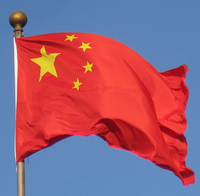Writing this week in the Washington Post, Fareed Zakaria argued that the United States needs to adopt a "hedge" strategy with regard to China, nudging the PRC toward assuming a cooperative, responsible role in the international order, while at the same time preparing for the possibility of an aggressive China bent on regional domination. Zakaria's argument echoed language in both the 2006 Quadrennial Defense Review (.pdf) and the 2010 QDR (.pdf), which took ambiguous stances on the future U.S.-China relationship. Those documents similarly suggested that China faced a choice over whether to become a constructive member of the international community, or to compete militarily with the United States. Meanwhile, in contrast to Zakaria and the Pentagon, a Nov. 11 Economist editorial contended instead that the internationalization of China's commercial class will inevitably push China's interests into alignment with the global liberal economic consensus.
What both arguments share is a focus on Beijing's choices, which inevitably leads to the question: What does China want? Unfortunately, this is a terrible way to approach the problem.
China is full of many people who want many different things. Like the U.S. national security apparatus, the Chinese government harbors a plethora of different foreign-policy perspectives, some focused on trade, others on power, and still others guided by domestic political concerns. Moreover, the Chinese government is no longer the only actor of consequence in China. Chinese public opinion increasingly constrains policymakers, and can even force them into action they don't want to take. Like all states, China is fractured. Recognizing its fractured nature is the key to developing an effective U.S. policy toward China's rise.

